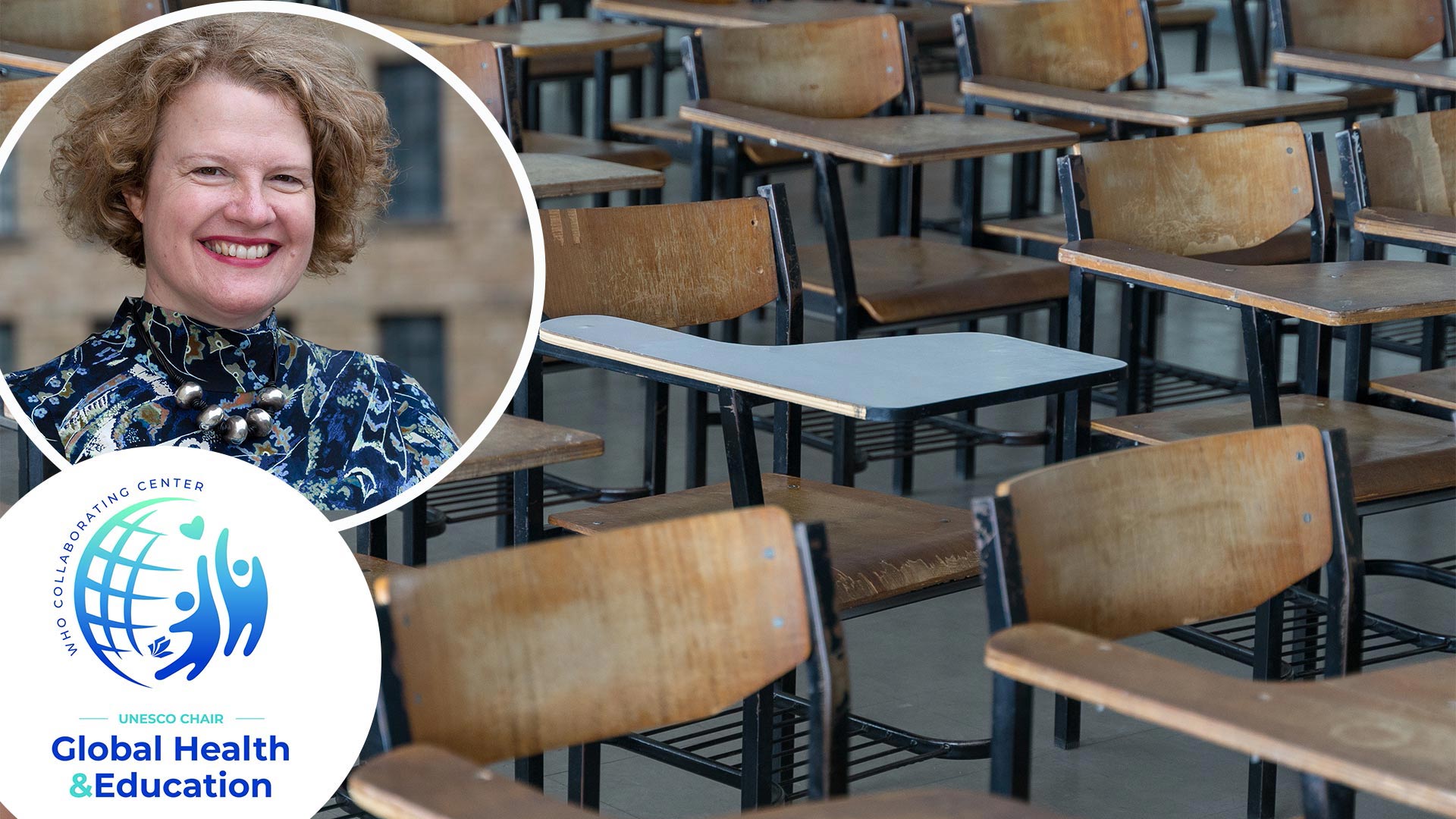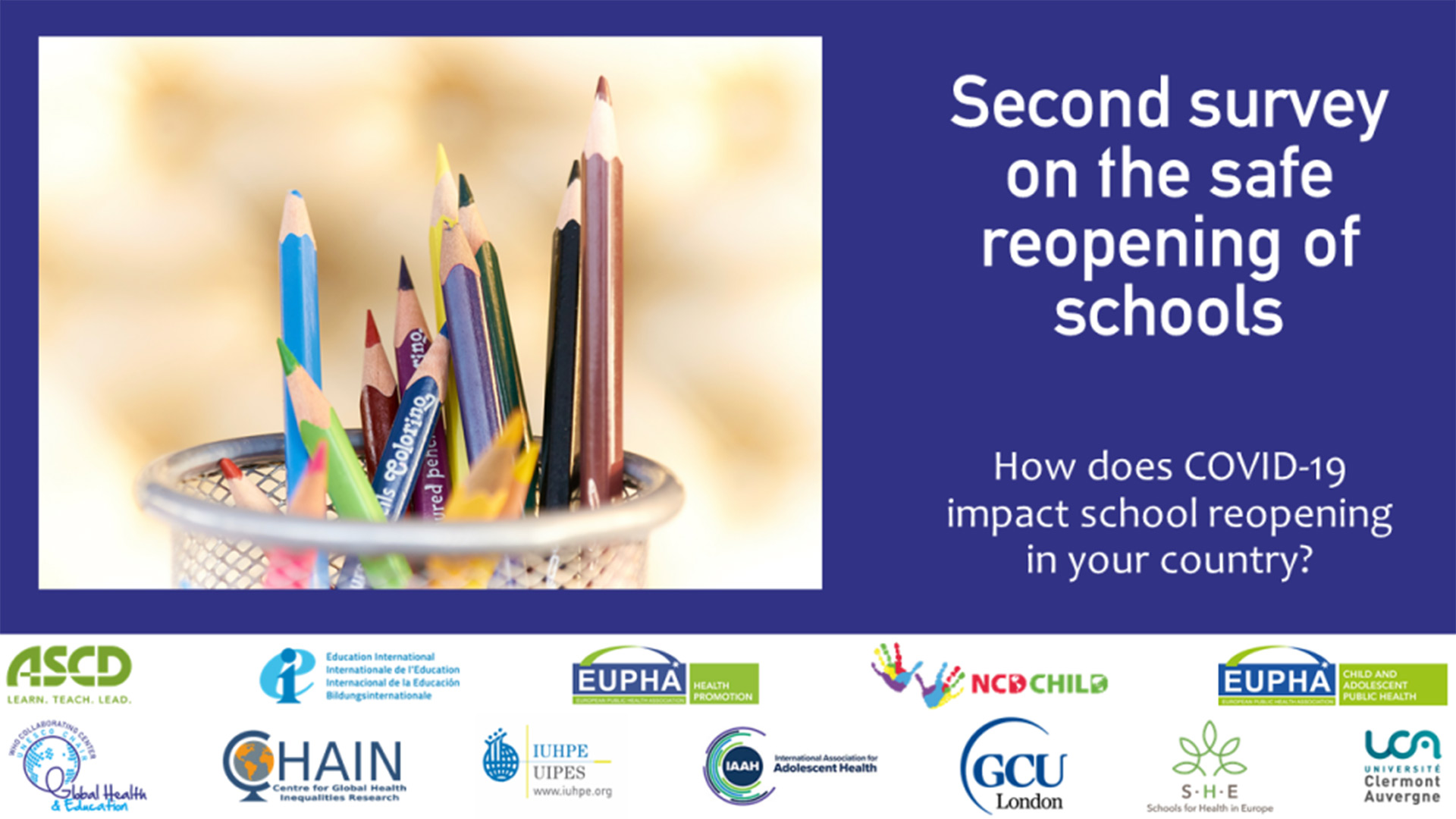Research shows multiple impacts of COVID-19 school closures on adolescents

Research into the multiple impacts of COVID-19 school closures on adolescent well-being has been published in a key journal.
The international study was led by the UNESCO Chair ‘Global Health and Education’, which is hosted jointly by the University of Huddersfield and the University of Clermont Auvergne in France.
Co-chair holder and University of Huddersfield academic, Dr Nicola Gray, who is renowned for her work on adolescent health, is the lead author of the study now published in the Journal of Adolescent Health.
Entitled Multiple Impacts on Adolescent Well-Being During COVID-19 School Closures: Insights From Professionals for Future Policy Using a Conceptual Framework, the research included notable academics in the field of adolescent health, such as UNESCO Chair ‘Global Health and Education’ founder Professor Didier Jourdan.
A consortium of partners composed of various research teams had input into the survey with data drawn from 60 interviews conducted in six languages with education and health professionals across 28 countries during the second wave of the COVID-19 pandemic amid school closures and re-openings in 2021.
Multiple impacts found
It found multiple, intersecting impacts of the pandemic on adolescent well-being and the potential for widening inequalities, making a case for caution regarding school closures in future health crises.
School closures were found to have impacted all five UN H6+ domains of adolescent well-being, which comprise good health and nutrition; connectedness; safety; learning; and agency/resilience.
The professionals reported that closures also widened inequalities for certain groups of students, disproportionately impacting the most vulnerable – linking to the University’s research on reduced inequalities, a key indicator that led to Huddersfield being ranked number one in the world for the United Nation’s Sustainable Development Goal 10 – Reduced Inequalities in the Times Higher Education Impact Rankings for 2025.
The study concluded that education policies need to see schools as infrastructure that supports multiple aspects of adolescent well-being, not just as a teaching-learning system.
In addition, the authors asserted that during recovery from a pandemic, holistic strategies related to adolescent well-being, not just a focus on educational catch-up, are needed to mitigate the long-term consequences of any closures.

More than a place to learn
Dr Gray, Reader in Medicines and Health at the University of Huddersfield, commented: “Schools are more than a place to learn. They provide welfare and connection for many students, as well as the means to a bright future. Policymakers must recognise multiple impacts of school closures on adolescent well-being and the potential for widening inequalities. The decision to close schools in any future crisis must be balanced against the damage it could do to young lives.”
On the back of the study, Dr Gray was asked by the World Health Organisation Europe to develop a factsheet detailing the impact of COVID-19 on education in the region, which she presented in June at a WHO/UNICEF webinar.
Dr Gray is also working on another paper on the same topic, to be published in a special issue of Public Health in Practice in the autumn. The paper was facilitated by WHO Europe to support the development of a new WHO/UNICEF strategy on child and adolescent well-being for Europe and Central Asia, She will speak about this research at a webinar hosted by The Royal Society for Public Health on 22 October. The webinar is titled School is more than a place to learn: An intersectoral assessment of adolescent well-being prior to and after the COVID-19 pandemic in the WHO European Region.
UNESCO Chair ‘Global Health and Education’
A UNESCO Chair is a collaborating centre that produces and shares knowledge to support institutions and professionals in their work, based on the strategies of UNESCO, the United Nations Educational, Scientific and Cultural Organisation.
The Chair relating to Global Health and Education was founded in 2018 by Professor Jourdan at the University of Clermont Auvergne in France. The University of Huddersfield and Dr Gray joined in 2022 through her role as the Vice-President for Europe of the IAAH.
Its ambition is to create a network with the aim of building a global community to promote the development of policies and practices to increase collaboration in the fields of education and health.
Further information
Photo credit: Adobe Stock/Templewood Photography/UNESCO Chair GHE
Photo caption: Dr Nicola Gray led the UNESCO Chair ‘Global Health and Education’ international study into the multiple impacts of COVID-19 school closures on adolescent well-being